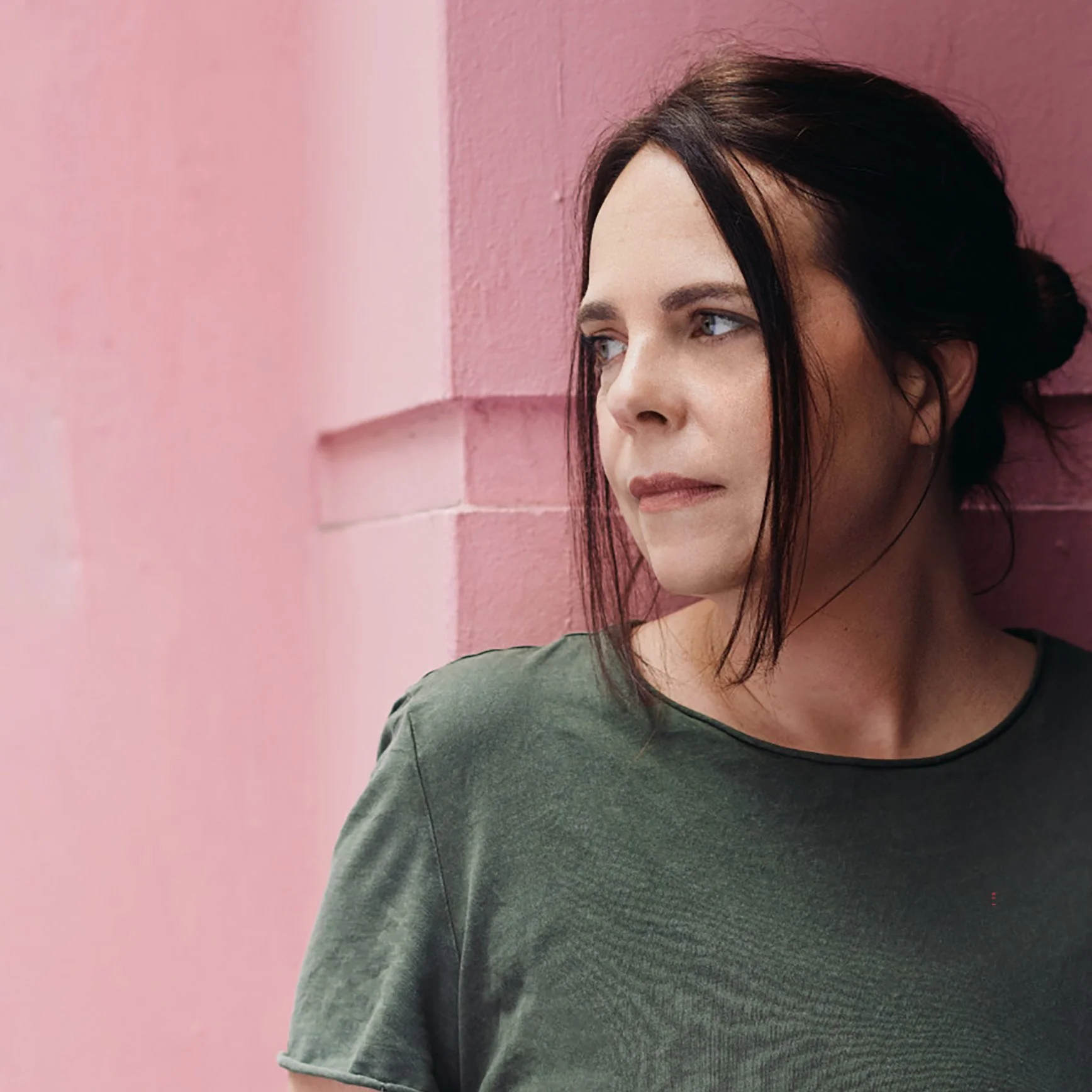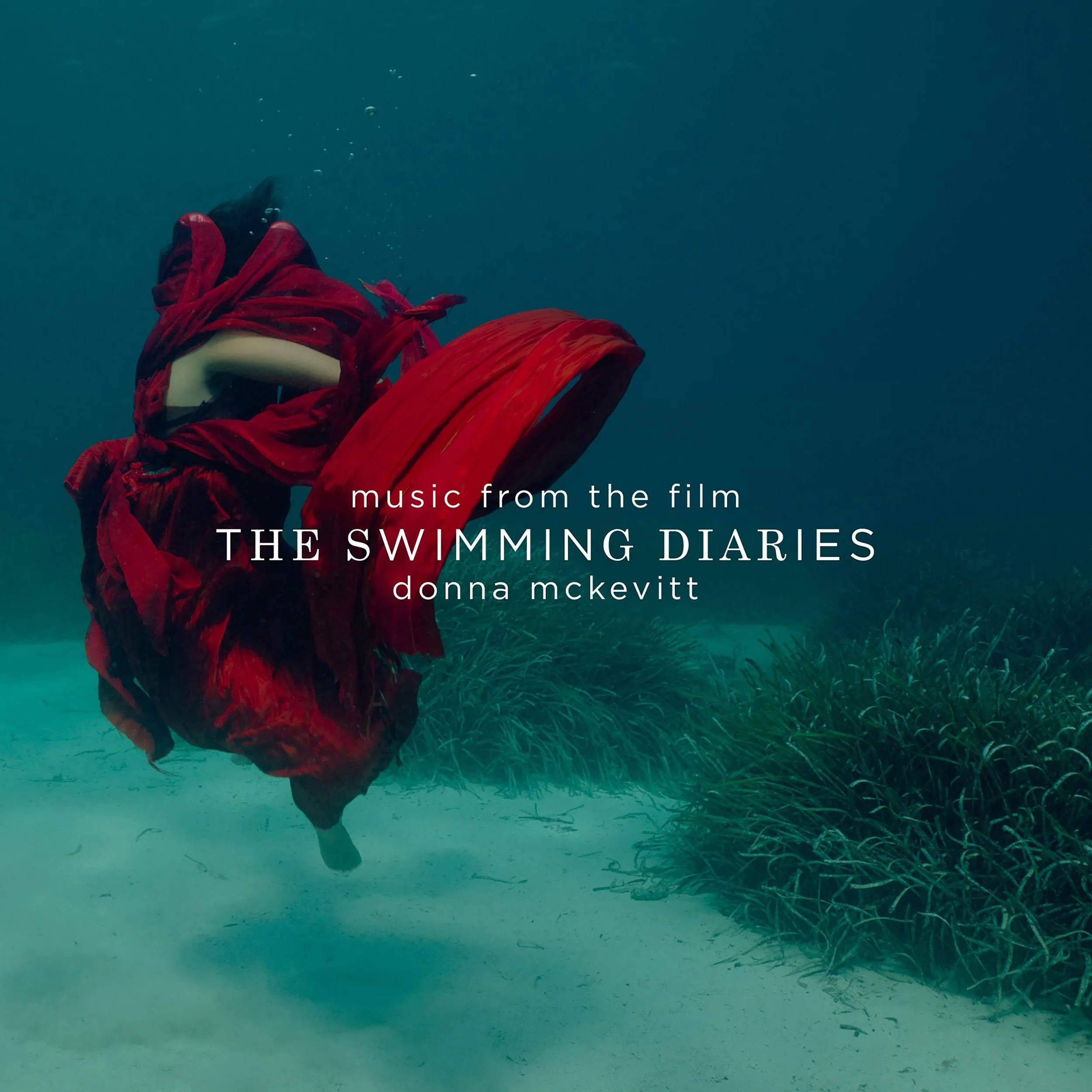Donna McKevitt
Donna is an extraordinary composer, musician, arranger, producer and vocalist. Her track record is considerable (more below) particularly within film, tv and advertising and we are looking forward to working with her on her extensive catalogue plus new soundtrack albums for movies such as The Swimming Diaries, Mountain Within Me and the recent feature documentary My Name Is Alfred Hitchcock.
In 1991, Daniel Miller of Mute Records signed a group of female madrigal singers who'd formed a goth-industrial rock band. Miranda Sex Garden were one of the label's more maverick additions, and they whirled their way through the first half of the nineties supporting Depeche Mode and Nick Cave, setting increasingly loud riffs against their indie medieval chorales. One member, Donna McKevitt, who wore a vestal virgin outfit on her first TV appearance, was quieter by nature than the others. McKevitt (vocals and electric viola) was a graduate of Kingston Polytechnic with her ears schooled in Steve Reich. When an opportunity came to score Derek Jarman's last film, Blue, in 1993, it opened a whole new musical world for her.
McKevitt has spent the last thirty years making exactly the music she wants to make. Her modern soundscapes are both restrained and deeply emotional, combining the elegance of baroque music with an eerie minimalism that reaches back to earlier, more mysterious times. McKevitt has scored countless films (she is a favourite of the documentarian Mark Cousins) and dance pieces (her work has been performed at the Royal Opera House and Sadler's Wells); she has set the poetry of Maya Angelou and e.e cummings to music, and has worked extensively in the fashion world. Her acclaimed song cycle Translucence, a setting of Jarman's poetry, was a record "full of silence and calm", she reflects now - a reaction, in part, to the chaos of the band on which she cut her teeth.
The Swimming Diaries is a collaboration between McKevitt and the poet and film-maker Susan Thomson. When Thomson's mother was dying, swimming helped her process her grief, and she also wrote extensively in the course of the same month. The resulting collection of poetry contains 25,000 words, one for each of the strokes she made. McKevitt worked in her home studio on the south coast to score music that resonates deeply with those words. She turned dreamlike lines into vivid songs, bringing new colours to them with her own voice. The meditation on grief answered a need for her too: McKevitt had just said goodbye to her dearest friend, whom she had nursed in his last illness at her family home.
"With most film work, you've got deadlines to meet and boxes to tick," she says. "I had no mental capacity to be dealing with that sort of thing. When Susan approached me I said, this is very timely. I could bring my life to the work. I didn't feel like I had to try and be something else for her. That is how I write, to be honest - it's very instinctual. I improvise, I experiment, and I don't try to overthink things."
The Swimming Diaries is McKevitt's most personal work yet, and a standalone album in its own right. It is also the soundtrack to a film by Thomson, shot at the stunning Clontarf baths, a seawater pool in Dublin Bay. Cranes and factory chimneys can be made out on the horizon in a setting both serene and industrial. A team of dancers deliver a raw and beautiful routine around an empty hospital bed. The story of Achilles floats in, with a young boy dressed in a toga and lit like something from Zeferelli. A medieval knight loses his armour, piece by clanking piece, at the edge of the pool.
McKevitt's soundtrack is a pure expression of what she does best as a composer. "I always like writing when there is a sense of, where the hell did that come from?" she explains. "It's almost a mystical process." One such moment was Coin Dance, which opens the album: she took inspiration from Thomson's footage of a dancer writhing on her back, placing two coins ominously on her eyes. "It's completely ambiguous," McKevitt says: "You can't tell if she's dying, or having an orgasm. It's got this real tension, this push and pull and release..."
She mirrored that tension with a taut but stately string refrain which builds, then drops, like the most heart-rending moments in Purcell's only opera Dido and Aeneas. I Don't Know Where This Train is Going and Water Holds Me Like A Lover are minimalist adventures set on mesmerising loops. The beautiful choral pieces The Wall and Go To The Limits of Your Longing belong in church, full of sweetness and subtle dissonance. And on the Reichian First Swim, things are recorded so close, you can hear the felt on the piano hammers...
It's all a far cry from Miranda Sex Garden. In 1993, the band supported Depeche Mode on what was, legendarily, the druggiest rock and roll tour of all time (the Devotional Tour). Playing to audiences of 30,000 every night, their sets were obliterated by the screaming of militant fans. "Every single night," she laughs. "The Depeche Mode fans didn't listen to us. The others loved the anarchy! I just didn't get it. And that's when I started to realize I was on a different planet..."
As a child of a working class family in South London, life in a rock band was a huge change for McKevitt, but it wasn't until she worked with Derek Jarman that she realised art - be it writing, painting, performing or composing - was something you could make into a life.
The challenge for any composer working in the soundtrack trade is responding sensitively to the director's demands while making the music they really want to make. But McKevitt explains that The Swimming Diaries, by its nature, allowed real collaboration.




